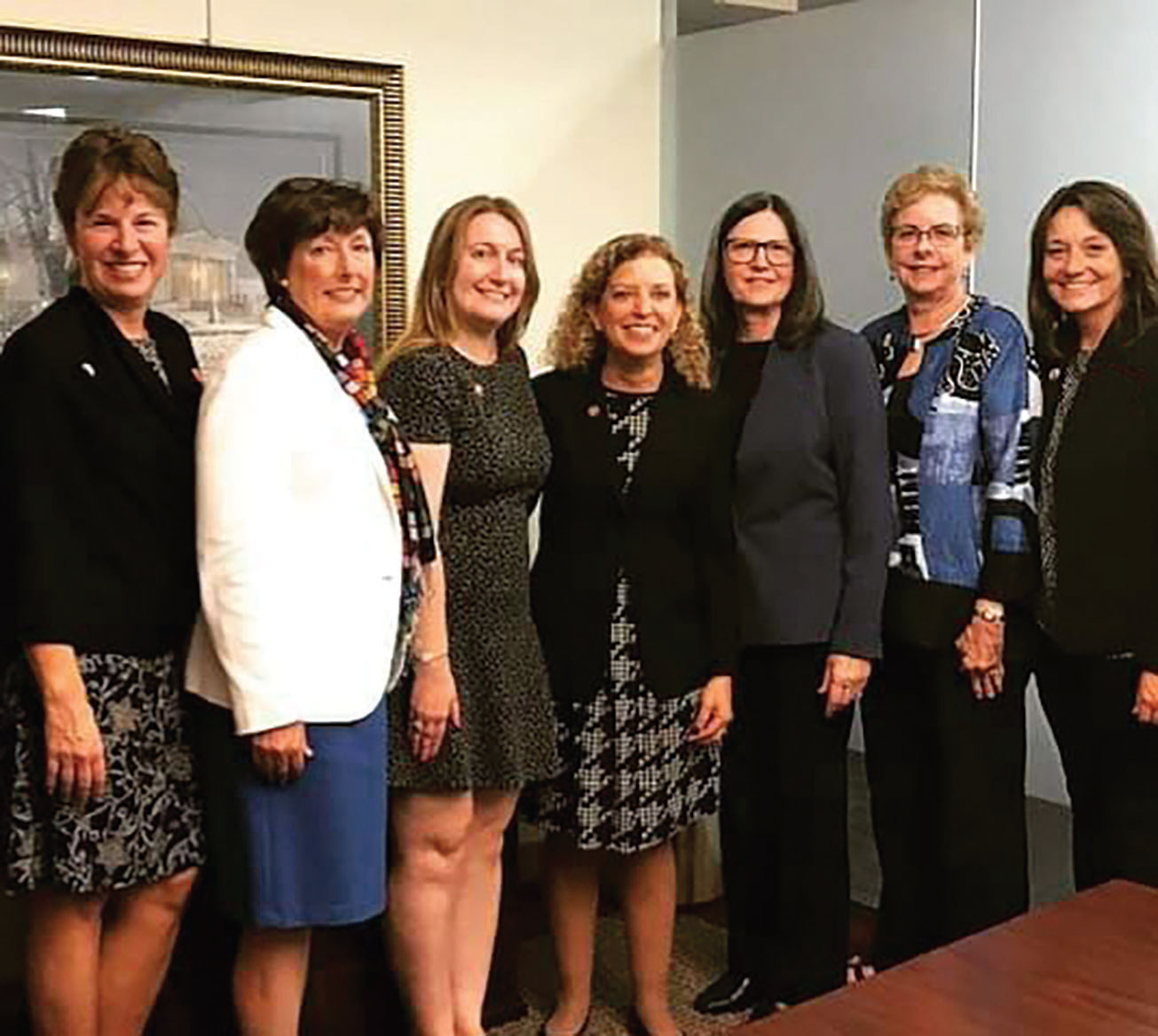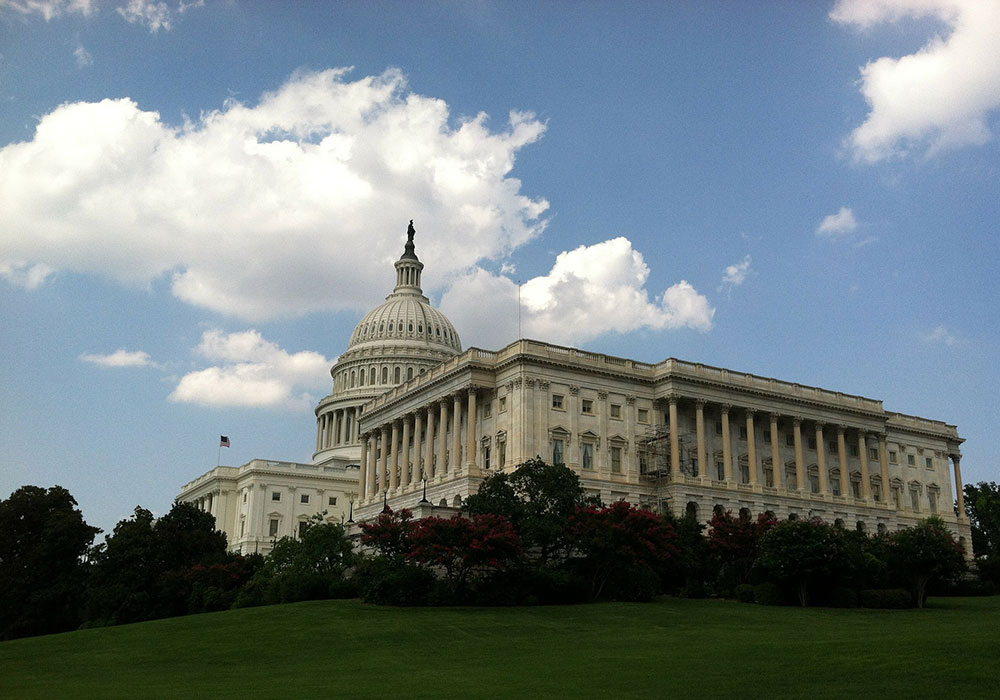Participants in ONS’s Fourth Annual Capitol Hill Days quickly saw the fruits of their efforts when two ONS priority bills were passed in the U.S. House of Representatives in October 2019. The yearly advocacy, education, and training event, held September 22–24, brought 110 ONS activists to Washington, DC, for two days of sessions, briefings, updates, and meetings. The advocates engaged in 55 hours of intensive political and policy analysis, enabling them to take the Society’s health policy priority agenda to the U.S. Congress and help transform the future of health care in the United States.
How Nurses Moved Important Legislation Forward
Advocates lobbied for four ONS priority bills, although one of the bills that passed was an additional fifth Society priority:
- Palliative Care and Hospice Education and Training Act ([PCHETA], H.R. 647/S. 2080): Palliative care is integral to oncology and should be offered at the time of a cancer diagnosis to alleviate physical, psychological, social, and spiritual pain and suffering, regardless of whether cure is an option. Oncology nurses stand at the front lines of cancer care, and ONS urged Congress to recognize the importance of better treatment and quality of life options for patients with serious illness and to address a training gap that exists in the field of palliative care. With the support of more than 100 oncology nurses on Capitol Hill, PCHETA reached a powerful 296 cosponsors and was passed in the House on October 28, 2019.
- Cancer Drug Parity Act (H.R. 1730/S. 741): Financial disparity and high medication cost should not be factors in physician and patient decisions. This is especially important as oral chemotherapy becomes a more common standard of care and many do not have IV or injectable equivalents. The legislation would require health plans to provide equivalent cost sharing for patient-administered anticancer medications that have been approved by the U.S. Food and Drug Administration as they currently pay for infused drugs. Two new representatives signed on to cosponsor the bill after talking to advocates at Hill Days.

- Lymphedema Treatment Act (H.R. 930/S. 518): Medicare’s durable medical equipment (DME) benefit must be required to cover lymphedema compression treatment items, including compression garments, devices, bandaging systems, components, and supplies used in the medical treatment of lymphedema that have been prescribed by a physician, physician assistant, nurse practitioner, or a clinical nurse specialist. One additional senator cosponsored the bill after Hill Days.
- Preventing Opportunities for Teen E-Cigarette and Tobacco Addiction (PROTECT) Act (H.R. 2111/S. 1048): Authorize $100 million in funding each year for five years for a Centers for Disease Control and Prevention (CDC) initiative to address increased use of e-cigarettes by youth through enhanced research, grants for states and localities to address the issue in their communities, the development of evidence-based policies, and other critical activities to combat the rise in e-cigarette use among youth. This bill was of particular interest to Congress and really resonated with the oncology nurses. Thanks to their enthusiasm, the bill gained an additional cosponsor in the House and three cosponsors in the Senate.
A fifth bill that has long been an ONS priority, the Title VIII Nursing Workforce Reauthorization Act (H.R. 728/S. 1399), also passed the House on October 28, 2019. Because of the limited time, ONS members couldn’t advocate for every one of ONS’s priorities in September, but ONS’s other lobbying work helped secure the House passage. Oncology nurse voices are needed to ensure bipartisan support as it enters the Senate.
What Hill Days Means to Attendees
Conference participants are encouraged to take the ONS Advocacy 101 online course for background before coming to DC. But nothing prepares a person for advocacy like being in the nation’s capital.
“It was an awesome experience! Initially I had some trepidation, but when the time came to go to my congressional meetings, I felt prepared and ready to tell my story,” Natalie Johnson, BSN, RN, a first-time Hill Day attendee from Seattle, WA, said.
And congressional representatives seemed to feel the same way about their experience with oncology nurses, as well.
“I was impressed by how much congressional staff wanted to hear from nurses on the ground. They sought my input and wanted to continue our discussion,” Ryne Wilson, RN, OCN®, ONS Southeast Minnesota Chapter representative, said.
Return participants have the opportunity to form trusted connections with their elected officials, as Colleen O’Brien, RN, president of the ONS Long Island/Queens Chapter, did.
“I’ve attended every ONS Capitol Hill Days meeting for the past four years, and my experience continues to be one of respect and admiration for these congressional offices and the work they do,” she said. “I have a working relationship with them, and they know on nursing, cancer, and certain healthcare issues that ONS is a respected resource they can trust.”
Where We Go From Here
“With the support and leadership of the Board of Directors, the ONS Center for Advocacy and Health Policy in Washington, DC, has been the focal point of the Society’s activism in public policy and government relations,” ONS’s Chief Strategy Officer Michele McCorkle, RN, MSN, said. “Our team works throughout the year to cultivate relationships and advocate for the key role oncology nurses have in the delivery of quality cancer care,”
As ONS builds on the success of its annual advocacy meeting, opportunities are available to strengthen the connections made in Washington, DC, back in each nurse’s home district. Chapters can form health policy committees and work with ONS’s Center for Advocacy and Health Policy in reaching out to elected officials and decision makers.
Coming to DC is great, but it’s the beginning, not the end of advocacy. As ONS activists heard many times at Hill Days, this is a marathon, not a sprint. ONS is in it for the long haul.
To learn more about how you can get involved, contact healthpolicy@ons.org.






